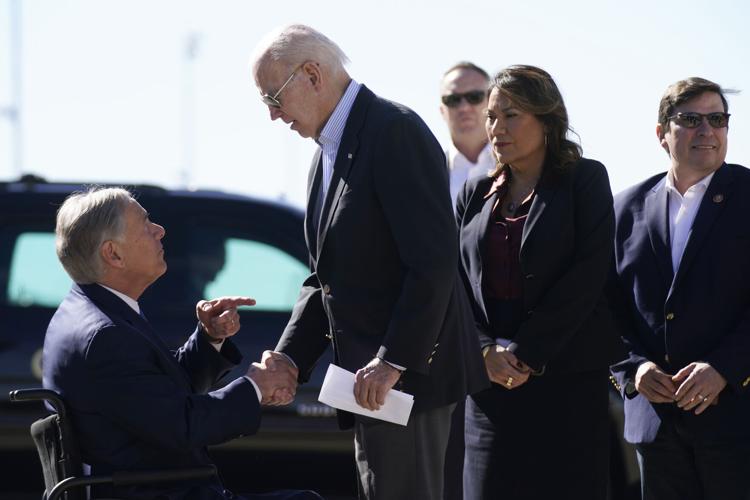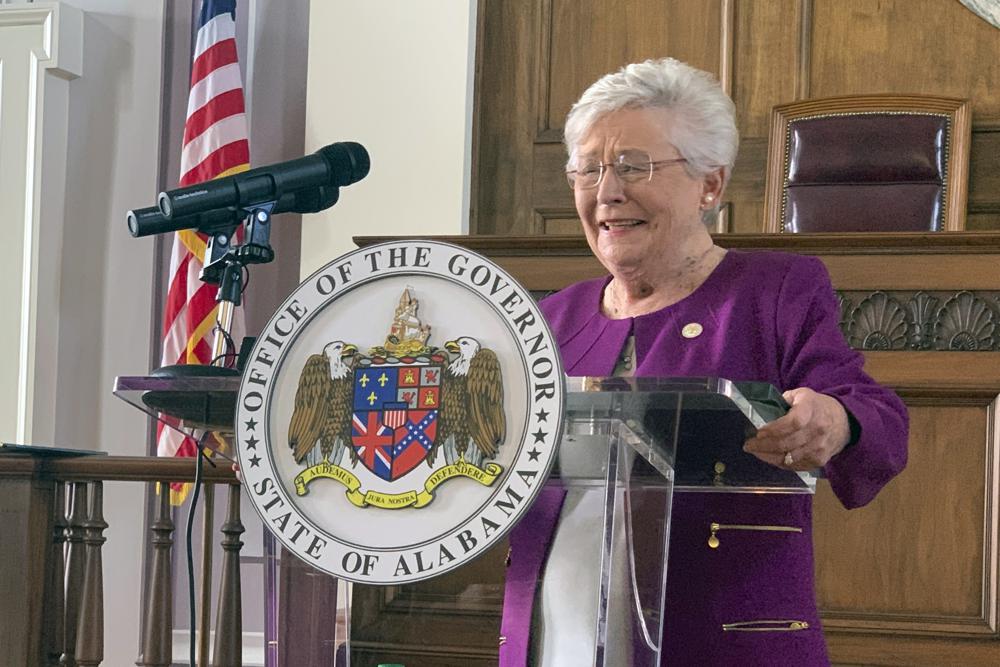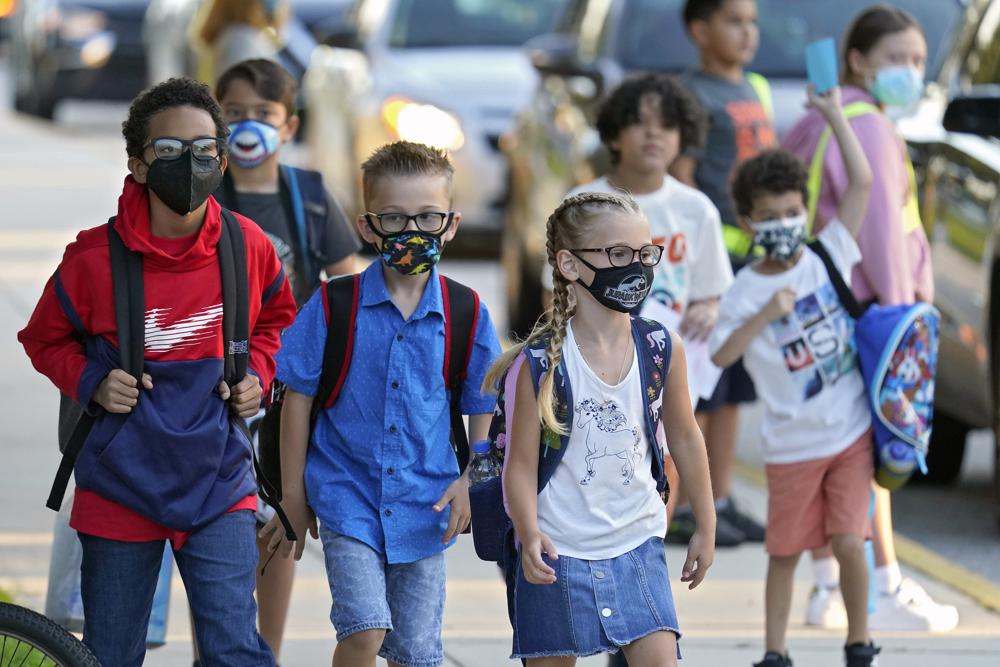Democratic governors to Joe Biden: Migrant crisis is ‘untenable,’ border ‘too open’

By Greg Bishop | The Center Square Illinois Gov. J.B. Pritzker is telling President Joe Biden the number of migrants arriving to Chicago from the southern U.S. border is accelerating. The situation is overwhelming, untenable and uncoordinated, he added. In a letter Pritzker sent the White House Monday, the governor said “the humanitarian crisis is overwhelming our ability to provide aid to the refugee population.” More than 15,000 migrants have arrived in Chicago in the past 13 months. With the letter, Pritzker joined a growing list of Democrats calling on the White House to do more. “Unfortunately, the welcome and aid Illinois has been providing to these asylum seekers has not been matched with support by the federal government,” the letter first reported by Capitol Fax said. “Most critically, the federal government’s lack of intervention and coordination at the border has created an untenable situation for Illinois.” Illinois taxpayers have covered more than $330 million on services for the migrants, a number Pritzker said is growing each day. “That’s a massive amount of money for a state still overcoming the health and economic effects of COVID-19,” Pritzker said. “Add to that the over $100 million the city of Chicago contributed.” Pritzker told Biden the situation is “untenable” and “requires your immediate help beyond the coming work authorizations for some of the asylum seekers.” The Biden administration should have one person provide oversight of the nation’s efforts at the border, Pritzker said, noting there are too many different federal department contacts who are not coordinated with each other. “A single office with an identified leader must be assigned to work for the cities and states across the silos of government to manage the challenges we all face,” Pritzker said. “It is time for the federal government to take a much more active role in managing the transport and destination of the transport of asylum seekers.” Pritzker said it is untenable to allow “just one state to lay the burden upon a certain few states run by Democrats …” While Texas Gov. Greg Abbott, a Republican, has been critical of Biden’s handling of the border by overseeing transportation of migrants crossing the southern U.S. border to Chicago, New York City, Washington D.C., and elsewhere, Democratic Mayor of El Paso Oscar Leeser has also been involved. In Arizona Monday, Gov. Katie Hobbs also expressed frustration with the flood of illegal border crossers and told The Center Square that the busing policy of some migrants from Arizona to other areas of the country is still in effect. “Yeah. As we’re seeing increases in folks coming in the NGO network at their capacity, we’re continuing to provide support, and that includes busing,” she said. In New York, a senior advisor to New York City Mayor Eric Adams urged Biden to “close the border.” “The federal government needs to do its job,” Adams’ advisor Ingrid Lewis-Martin told PIX 11. “We need the federal government, the Congress members, the Senate, and the president to do its job: Close the borders.” New York Gov. Kathy Hochul told CBS Sunday that the border “is too open right now.” “People coming from all over the world are finding their way through, simply saying they need asylum, and the majority of them seem to be ending up in the streets of New York, and that is a real problem for New York City,” she said. White House press secretary Karine Jean-Pierre addressed border security concerns. “You have a president that has delivered record funding, record funding to make sure that we have additional … border patrol federal employees at the border,” Jean-Pierre said. “We’ve made clear that attempting to cross the border unlawfully will result in prompt removal, a five-year ban on reentry, and potential criminal prosecution.” Among other recommendations Pritzker offered Biden include waiving fees for temporary protected status applications, increasing the logistical coordination and data collection, provide financial support to state, local government and non-government organizations for housing, food and social services, and approve Illinois’ requests for Medicaid waivers, housing vouchers, and federal coordination and support. “Today, Illinois stands mostly unsupported against this enormous strain on our state resources,” Pritzker said. “Mr. President, I urge you … and the rest of your administration to take swift action.” Republished with the permission of The Center Square.
Investment standards debate moves into state legislatures

Environmental, social, and governance investment standards are a hot topic among Republican lawmakers across the U.S., who see it as a political move to force a progressive agenda. Democrats, on the other hand, see it as a smart investing strategy. Oklahoma is the latest state to attract national attention to ESG investing, even though the Legislature passed a bill regarding it last year. State Treasurer Todd Russ published a list of 13 financial institutions banned from doing business with the state of Oklahoma earlier this month because of their ESG policies regarding fossil fuels. Those 13 companies have 90 days to tell the state it has stopped boycotting energy companies. And if they haven’t stopped their boycott, the law grants the state six months to divest itself of 50% of investments with the financial company and a full year to divest 100%. In Tennessee, Gov. Bill Lee signed a bill that prevents the state’s treasurer from investing state funds based on ESG. The bill’s fiscal note states it will not significantly impact state or local revenues. Some Republican states are raising concerns and sometimes rejecting bills banning ESG-related policies. The North Dakota House of Representatives rejected a bill that would have required the North Dakota Department of Financial Institutions to monitor banks for ESG policies. The bill would have cost the state about $1.7 million, with most of that going to salaries for additional bank examiners. The Arkansas Legislature also discussed possible fiscal implications when discussing a bill similar to Oklahoma’s, requiring the state to divest from financial institutions with ESG standards. The treasurer would also have to maintain a list of those financial institutions. Gov. Sarah Huckabee Sanders signed the legislation. Fiscal concerns have not deterred every state from opposing ESG standards. Indiana Gov. Eric Holcomb signed House Bill 1008, which prohibits the board of trustees of the Indiana public retirement system “from making an investment decision with the purpose of influencing any social or environmental policy or attempting to influence the governance of any corporation for nonfinancial purposes.” It also requires the pension board to make investment decisions “solely in the financial interest of the participants and beneficiaries of the system for the exclusive purposes of providing financial benefits to participants and beneficiaries and defraying reasonable expenses of administering the system.” This despite concerns the state could lose $6.7 billion in investments. Utah Attorney General Sean Reyes, Alabama Attorney General Steve Marshall, and Illinois State Treasurer Michael Frerichs testified before the U.S. House Oversight Committee earlier this month. Frerichs told the panel that ESG was simply data used to make investment decisions. Treasurers and comptrollers from Colorado, Connecticut, Delaware, Massachusetts, New York City, Oregon, Vermont, and Washington state issued a statement backing Frerichs’ testimony. “The truth is simple. More data on risk leads to stronger returns for retirement accounts over the long term,” they said. “Ignoring risks to focus on short-term gains is not aligned with the needs of millions of Americans saving for retirement or their families’ education. But it is aligned with a short-term outlook to boost corporate profits. That’s why we’re hearing such loud and manufactured outrage against responsible investing.” While Republicans are banning financial institutions with ESG investment standards, Democratic-controlled states are embracing policies. New York lawmakers are considering a bill establishing a Green New Deal task force. The task force would develop a “detailed statewide, industrial, economic mobilization plan for the transition of the New York economy to become greenhouse neutral by 2030.” One of the bill’s goals is to promote “economic and environmental justice and equality.” Washington state lawmakers are considering a bill that would require “the state investment board publicly report on the climate-related financial risk, social responsibility, and proxy voting and corporate governance policies within its private and public market portfolios, including the alignment of the fund with the Paris climate agreement and Washington’s climate policy goals.” The legislation has yet to be heard in committee. In Arizona, the Republican-majority Legislature passed a bill banning banks from using a “social credit score” when making lending decisions. Democratic Gov. Katie Hobbs vetoed the bill, calling it ambiguous as it doesn’t define a “social credit score.” And in Illinois, Democratic lawmakers passed a bill that requires investment managers of Illinois public funds, including pension systems, to disclose how they integrate environmental, social, and governance policies into their investment strategies. The bill is set to be sent to Democratic Gov. J.B. Pritzker. Republished with the permission of The Center Square.
Kay Ivey gets a ‘D’ in report card stacking up U.S. governors’ fiscal policies

Gov. Kay Ivey’s years-long support of an increased gas tax in Alabama landed her in the bottom tier of a new report grading states’ top-level leaders on their fiscal policies. The Cato Institute, a public policy organization focused on limited government, recently released its 2022 Fiscal Policy Report Card on America’s Governors. Co-authors Chris Edwards and Ilana Blumsack gave Ivey, who is seeking a second full term in office this fall, a score of “D.” In their analysis of Ivey’s fiscal performance throughout her first full term in office, Edwards and Blumsack elaborated on why they gave the governor a low score. “Running for a full term in office in 2018, Ivey said she opposed tax increases,” Edwards and Blumsack wrote. “Nonetheless, she has raised some taxes, including the gas tax by 10 cents per gallon in 2019 and an assessment on nursing home facilities in 2020.” In their report, the authors did note some of Ivey’s more recent tax-cutting overtures in her run-up to reelection and against the backdrop of inflation. “Ivey switched direction recently and approved modest tax cuts, including raising the standard deduction, exempting $6,000 of retirement income from taxes, increasing an adoption credit, and exempting small businesses from the business privilege tax,” Edwards and Blumsack wrote. Early this year, during the most recent legislative session, Ivey also touted her support of House Bill 231, which she signed into law in February. “I am proud to sign this needed tax relief into law so that money will return directly into the hands of hardworking Alabamians,” Ivey said in the news release. Ivey’s support of a gas tax, and her denial of cutting it back this spring, has been a source of criticism since she first signed the legislation into law in 2019. Proceeds from portions of the increased gas tax have been poured into Ivey’s 2019 Rebuild Alabama Act, which required the state’s Department of Transportation to annually allocate $10 million from excised gas taxes. “Since becoming governor, with the support of Rebuild Alabama, we have embarked on more than 1,500 new road and bridge projects worth more than $5 billion,” Ivey said in March. “We certainly have more work in front of us, and I am proud to continue those efforts today.” While the Cato Institute’s newest report did not have a clear-cut partisan divide in the granular state-by-state rankings, there was a prevailing theme. The top-performing governors in this year’s report were Republican, while the lowest-scoring leaders were Democrats. “The results are data-driven. They account for tax and spending actions that affect short-term budgets in the states,” Edwards and Blumsack said of their methodology. “But they do not account for longer-term or structural changes that governors may make, such as reforms to state pension plans.” Five governors, all Republican, received an “A” in this year’s Cato Institute report: Doug Ducey of Arizona; Brad Little of Idaho; Kim Reynolds of Iowa; Pete Ricketts of Nebraska; and Chris Sununu of New Hampshire. On the bottom end, eight Democrat governors received an “F” in the Cato Institute’s analysis of their fiscal policies: Kate Brown of Oregon; Jay Inslee of Washington; Phil Murphy of New Jersey; Gavin Newsom of California; J.B. Pritzker of Illinois; Tim Walz of Minnesota; Gretchen Whitmer of Michigan; and Tom Wolf of Pennsylvania. Republished with the permission of The Center Square.
Joe Biden calls school chiefs, lauds defiance of anti-mask rules

President Joe Biden called school district superintendents in Florida and Arizona to praise them for doing “the right thing” after their respective boards implemented mask requirements in defiance of their Republican governors amid growing COVID-19 infections. The White House said in a Saturday statement that the Democratic president had spoken with interim Broward Superintendent Vickie Cartwright in Florida and Phoenix Union High School District Superintendent Chad Gestson in Arizona “to thank them for their leadership and discuss their shared commitment to getting all students back in safe, full-time in-person learning this school year.” “The President commended their leadership and courage to do the right thing for the health and well-being of their students, teachers, and schools,” the statement said. Biden’s phone calls of support come as tensions build over whether local school districts can and should require face coverings for students and school staff as in-person classes resume. In Texas, several school districts — along with the state’s most populous county — won temporary legal victories Friday in seeking to override Republican Gov. Greg Abbott’s ban on mask mandates, which they argued is making the COVID-19 pandemic worse. Similar lawsuits by school districts in other states have also been filed. Clashes over mandatory mask-wearing have already occurred. Officials at a suburban Chicago high school on Friday sent a freshman student home for refusing to put on a face covering, a decision her mother contends violates her 14-year-old daughter’s rights. Sheri Urlacher said her daughter was sent home from Fremd High School in Palatine after officials at the door of the school handed her a mask and asked her to put it on. She told the Chicago Tribune she was called after her daughter “politely declined” to pull the mask up over her mouth and nose. While the girl was back in school wearing a mask later in the day, Urlacher said she was bothered by the school’s initial decision to send her daughter home. “She’s OK, but she knows she has the right to make decisions about her own body, and it’s not the right of the school and government,” she said. The incident comes days after Illinois Gov. J.B. Pritzker, a Democrat, ordered face coverings for all school children from preschool through 12th grade in the hopes of slowing the spread of a virulent delta variant of the virus, which has surged in recent weeks. Meanwhile, Biden’s call to the leader of the Broward County schools in Florida escalated the president’s partisan battle with Republican Gov. Ron DeSantis over how his state’s schools should operate as the COVID-19 pandemic worsens in the state. The Biden administration has promised Broward federal money if Florida’s governor carries out a threat to withhold some state funds from any school district that imposes a mask mandate. Using a law passed this year, DeSantis has barred schools and other local governments from imposing mask mandates. The governor has said he believes masks are not needed for children, who are less likely than adults to catch the coronavirus, and that they interfere with learning. He also has said it should be up to parents to determine if their child wears a mask. The state’s board of education recently said students forced to wear masks over their parents’ objections could be eligible for a voucher that would pay for their transfer to a private school. Broward school officials did not respond to an email Saturday seeking comment. Earlier this week, its school board voted 8-1 to impose the mask mandate over DeSantis’ objection. DeSantis is running for reelection next year and is considering a 2024 run against Biden, with the two sniping at each other in recent weeks. His press office also did not respond to a call and email Saturday seeking comment. Meanwhile, Arizona Gov. Doug Ducey, in June, signed into law budget legislation enacted by the Republican-led Legislature to prohibit school districts from requiring mask-wearing. Phoenix Union is one of Arizona’s largest school districts, with about 28,000 students and 4,000 employees. After its governing board decided to enforce indoor mask-wearing when classes resumed Aug. 2, six elementary school districts that feed students to the high school districts followed its lead. The Arizona legislation that includes the prohibition on mask-wearing mandates by districts takes effect Sept. 29. It includes a clause making it retroactive to July 1, but Phoenix Union contends it isn’t binding yet, and that’s being argued in court. Arizona on Saturday reported more than 3,000 additional COVID-19 cases for the second straight day. The state last reported that many additional cases six months ago as the winter surge wound down. Republished with the permission of the Associated Press.


